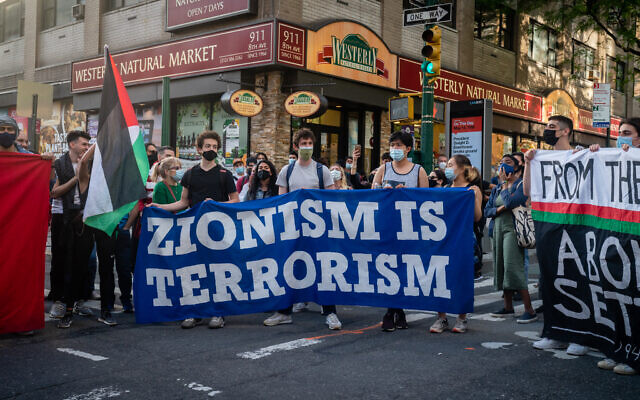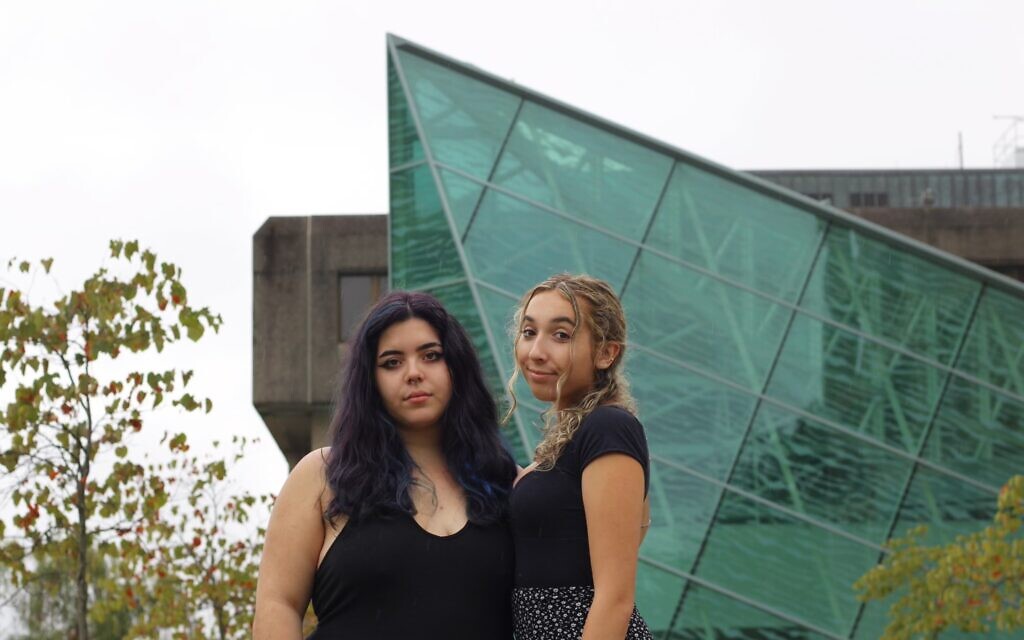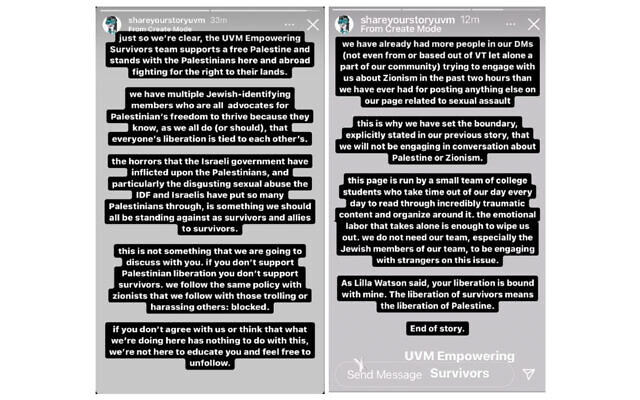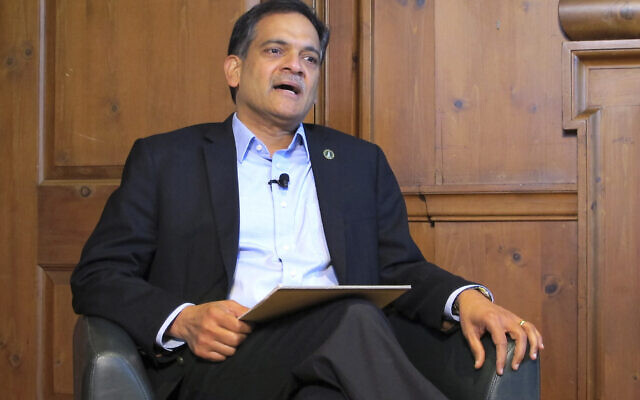 US students report jump in mental scarring from campus antisemitism, but see no end
US students report jump in mental scarring from campus antisemitism, but see no end
CATHRYN J. PRINCE
From a Jewish sexual assault survivor targeted by her support group, to a pupil afraid to wear a Star of David, young Jews say they walk on campuses in fear of hate crimes
NEW YORK — Ofek Preis won’t walk to class by herself anymore. She’s afraid of being harassed for being Jewish.
“I’m just so burnt out from this. I just want to go to class and have a normal class. Then I remember that there is so much antisemitism here. It can be really debilitating,” said Preis, a 21-year-old senior at State University of New York (SUNY) New Paltz.
“It’s shocking and triggering. You start to feel you have no control of your learning environment; you feel unsafe everywhere,” she told The Times of Israel.
Preis isn’t alone: Jewish students across the United States report being excluded from campus organizations, targeted on social media and harassed in classes by students and professors alike. Additionally, they’ve seen dormitories and sidewalks vandalized with swastikas, and buildings plastered with flyers that equate Birthright trips to Israel with genocide and call for Zionists to “fuck off.”
Yet, often lost in the coverage of these incidents is the emotional toll they take on the Jewish students.
One in three college students personally experiences antisemitic hate during the academic year, according to an October 2021 survey conducted for the Anti-defamation League (ADL) and Hillel International. The survey found that 32 percent of Jewish students experienced antisemitism directed at them, and 79% of those students reported that it happened to them on more than one occasion.
Additionally, over 350 anti-Israel incidents occurred on campuses nationwide during the academic year 2021-2022, according to the ADL’s annual Campus Report. The most common means of harassment involved excluding Zionist students, supporting anti-Israel violence and perpetuating antisemitic tropes, according to the report.
“Hate crimes, including those derived from antisemitism, can have dangerous physical, psychological and societal consequences. Research demonstrates that acts of discrimination affect the immune systems of victims and those who witness hateful acts, and the effects of hate crimes change attitudes and behaviors at a societal level for years,” says a June 2021 American Psychological Association statement.
For Preis, the ordeal began after she transferred to SUNY New Paltz from SUNY Geneseo in the fall semester of 2021.
An Israeli studying abroad, Preis was allegedly kicked out of New Paltz Accountability, a sexual-assault survivors’ support group, together with classmate Cassie Blotner, for posting about their Jewish identity on social media. Accused of white supremacy, the girls were targeted on the YikYak social media platform in the spring of 2022 with an anonymous post encouraging students to spit on “the Zionists.”
Pilloried on social media and vilified on campus, Preis said the situation became unbearable. Jittery, anxious, and unable to concentrate, she took most of her classes online for several weeks. She also moved into an off-campus apartment. The decision helped her emotionally but not academically.
Once a double major in political science and sociology, Preis said she fell behind in her studies. Forced to choose between graduating later to make up political science credits or dropping it as one of her two majors, she’s now a sociology major with a political science minor.
“It’s hard to muster up the energy to just get through my day. As a sexual assault survivor it was already a struggle, but this [antisemitism] added another layer to feeling that our safety and well-being is not protected here,” Preis said.

The US Department of Education’s Office for Civil Rights is now investigating SUNY New Paltz for not protecting Jewish students and addressing campus antisemitism. The investigation will determine whether the university violated Title VI of the 1964 Civil Rights Act, which prohibits discrimination based on race and religion.
Zawartość publikowanych artykułów i materiałów nie reprezentuje poglądów ani opinii Reunion’68,
ani też webmastera Blogu Reunion’68, chyba ze jest to wyraźnie zaznaczone.
Twoje uwagi, linki, własne artykuły lub wiadomości prześlij na adres:
webmaster@reunion68.com






